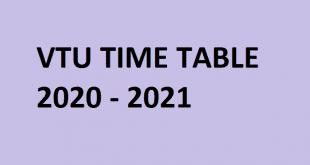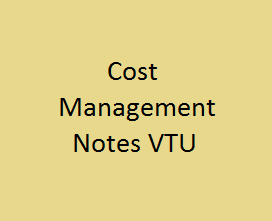Here you can download the Java and J2ee VTU Notes Pdf – Java PDF as per VTU Syllabus. Below we have list all the links as per the modules.
VTU Java and J2ee Notes Pdf – Java Pdf VTU of Total Modules
Please find the download links of Java and J2ee VTU Notes Pdf – Java Pdf VTU are listed below:

Java and J2ee Notes VTU
Link: Complete Notes
———————————–
PART – A
Link: Part A Notes
———————————–
UNIT – 1
INTRODUCTION TO JAVA: Java and Java applications; Java Development Kit (JDK); Java is interpreted, Byte Code, JVM; Object-oriented programming; Simple Java programs. Data types and other tokens: Boolean variables, int, long, char, operators, arrays, white spaces, literals, assigning values; Creating and destroying objects; Access specifiers. Operators and Expressions: Arithmetic Operators, Bitwise operators, Relational operators, The Assignment Operator, The? Operator; Operator Precedence; Logical expression; Type casting; Strings Control Statements: Selection statements, iteration statements, Jump Statements.
Link: Unit-1
———————————–
UNIT – 2
HERITANCE, EXCEPTIONS, APPLETS: Classes: Classes in Java; CLASSES, declaring a class; Class name; Super classes; Constructors; Creating instances of the class; Inner classes. Inheritance: Simple, multiple, and multilevel inheritance; Overriding, overloading. Exception handling: Exception handling in Java. The Applet Class: Two types of Applets; Applet basics; Applet Architecture; An Applet skeleton; Simple Applet display methods; Requesting repainting; Using the Status Window; The HTML APPLET tag; Passing parameters to Applets; get Document base() and get Codebase(); Aplet Context and show Document(); The Audio Clip Interface; The Applet Stub Interface; Output to the Console.
Link: Unit-2
———————————–
UNIT – 3
MULTI-THREADED PROGRAMMING, EVENT HANDLING: Multi-Threaded Programming: What are threads? How to make the classes threadable; Extending threads; Implementing runnable; Synchronization; Changing the state of the thread; Bounded buffer problems, read-write problem, producer-consumer problems. Event Handling: Two event handling mechanisms; The delegation event model; Event classes; Sources of events; Event listener interfaces; Using the delegation event model; Adapter classes; Inner classes.
Link: Unit-3
———————————–
UNIT – 4
SWINGS: Swings: The origins of Swing; Two key Swing features; Components and Containers; The Swing Packages; A simple Swing Application; Create a Swing Applet; J label and Image Icon; J Text Field; The Swing Buttons; J Tabbed pane; J Scroll Pane; J List; J Combo Box; J Table.
Link: Unit-4
———————————–
PART – B
Link: Part-B
———————————–
UNIT – 5
JAVA 2 ENTERPRISE EDITION OVERVIEW, DATABASE ACCESS: Overview of J2EE and J2SE. The Concept of JDBC; JDBC Driver Types; JDBC Packages; A Brief Overview of the JDBC process; Database Connection; Associating the JDBC/ODBC Bridge with the Database; Statement Objects; Result Set; Transaction Processing; Metadata, Data types; Exceptions.
Link: Unit-5
———————————–
UNIT – 6
SERVLETS: Background; The Life Cycle of a Servlet; Using Tomcat for Servlet
Development; A simple Servlet; The Servlet API; The Java x. servlet Package; Reading Servlet Parameter; The Java x. servlet. HTTP package; Handling HTTP Requests and Responses; Using Cookies; Session Tracking.
Link:Unit-6
———————————–
UNIT – 7
JSP, RMI: Java Server Pages (JSP): JSP, JSP Tags, Tomcat, Request String, User Sessions,Cookies, Session Objects. Java Remote Method Invocation: Remote Method Invocation concept; Server side, Client side.
Link:Unit-7
———————————–
UNIT – 8
ENTERPRISE JAVA BEANS: Enterprise java Beans; Deployment Descriptors; Session Java Bean, Entity Java Bean; Message-Driven Bean; The JAR File.





